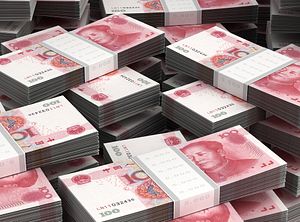The Beijing Municipal Public Security Bureau recently revealed in a statement on its website that it cracked down on underground banks in September. Ten underground banks, run from family homes, allowed clients to purchase foreign exchange and transfer funds abroad. Funds were converted through bank accounts that purchased up to the maximum of $50,000 in foreign exchange.
In the sting, the police arrested 59 suspects and froze 264 bank accounts potentially associated with the operation. While there are various ways to transfer money out of China, such as export over-invoicing or casino laundering, this operation used registered bank account transfers overseas to appear above-board. Individuals are allowed to transfer up to $50,000 abroad annually through the banking system. In this case, however, many bank accounts were registered to one individual, allowing excessive transfer of funds abroad.
This crackdown is nothing new – underground banks are periodically uncovered and raided. The bust also follows the anti-corruption trend that has attempted to control the illegal use of funds in targeted areas, as President Xi Jinping has demanded internal discipline within the Communist Party. CCTV’s exposé on the Bank of China, revealing that the bank had allegedly transferred large amounts of cash for individuals preparing to emigrate abroad, and the baring of a list of high-status individuals with offshore accounts, have been a part of the parallel trend within the media to uncover broader misuses of funds and capital flight. In the Bank of China’s Youhui Tong program, wealthy individuals can remit large sums of money abroad. CCTV asserted that the sums sent abroad are unlimited and illegal; the Bank of China rejected CCTV’s allegations, stating that the program restricts individuals to emigrating through investments or the purchase of property abroad. Similarly, the International Consortium of Investigative Journalists uncovered a list of 22,000 individuals from mainland China and Hong Kong with offshore accounts that may be used to disguise or transfer illicit wealth.
Underground banks are used for a variety of purposes, both criminal and everyday. These banks may be used for money laundering on behalf of criminals. Proceeds from drug trafficking, tax evasion, or other criminal actions can be manipulated to appear legitimate. On the other hand, underground banks can also be used for lending to smaller enterprises, or for remitting money abroad to relatives. Smaller enterprises are constrained in borrowing from banks, and often must turn to other sources of funding, including, potentially, underground banks. Finally, money remittance, or fei ch’ien, is an untracked method of sending funds abroad, and is often used to provide funds for family and friends overseas.
While underground banks may have a positive impact on the economy, they may also mask a darker side that includes illegal activity. Sorting out the extent to which underground banks provide legitimate or illegitimate business is challenging since transaction records are almost entirely opaque. Certainly in China’s recent crackdown, the capital flight carried out through bank accounts illegally registered to one person must be curtailed if it is to maintain capital controls.
Uncovering underground banks is tricky, since they are set up to evade detection. In this case, suspicious activity by the individual with multiple bank accounts was traced back to the underground banks. The People’s Bank of China contains an Anti-Money Laundering Bureau and controls the Chinese Anti-Money Laundering Monitoring Analysis Center, while monitoring responsibilities are shared with other agencies, including the Ministry of Public Security’s Anti-Money Laundering Division and Anti-Terrorism Bureau. These bodies may not detect underground banking activity, however. In this case, suspicious activity was identified and investigated by the Beijing police.

































